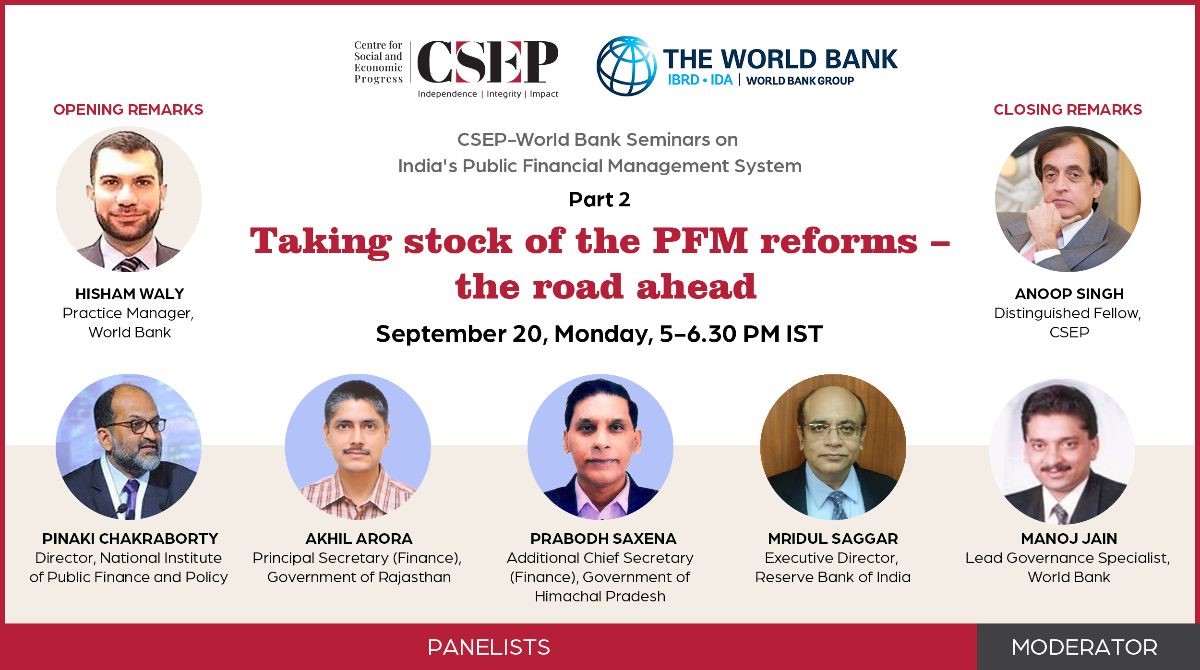International evidence has shown that a strong PFM system is critical for operational and allocative efficiency and sustainability of public expenditure. Indian PFM systems, across the centre and the states, have undergone sporadic, disparate, and incremental changes over a number of years.
The COVID-19 pandemic has exposed the vulnerabilities of the PFM system and has forced governments to adopt rapid remedial measures such as reprogramming / reprioritising expenditures, easing procurement processes, expediting execution modalities, and arranging for liquidity with all the attendant risks. The pandemic has, thus, highlighted the need to deepen and strengthen the PFM architecture and, thereby, change the way governments manage public money.
In building the post-COVID-19 recovery, the nature of fiscal governance and the quality and direction of public spending, especially infrastructure investment, will play a key role. Across countries, and especially in India, with resources being tight, governments will need to carefully redirect spending to the productive sectors with higher multiplier effects on rebuilding inclusive growth.
For this, all tiers of government will need better fiscal governance—strong institutions and frameworks to plan, allocate, implement, report, and assess the quality of public spending and public infrastructure. The fiscal challenges brought on by the pandemic have heightened the urgency to strengthen the PFM system in India.
In this context, the Centre for Social and Economic Progress (CESP) in coordination with the World Bank is organising three seminars in September 2021 to examine and explore the need and opportunities for reforms in fiscal governance and the PFM system in India.



